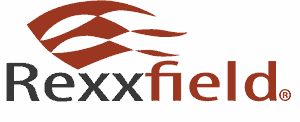DMCA takedown demands can be an effective tool for removing unprotected, defamatory and fallacious speech from websites and search engines for search results displayed as a result of searches on a particular subject, person or business.
What is the Digital Millennium Copyright Act (DMCA)?
The Digital Millennium Copyright Act (DMCA) is a copyright law of the United States that merges two 1996 treaties of the World Intellectual Property Organization (WIPO). The lawmakers wrote into it provisions to heighten the penalties for copyright infringement on the Internet. President Bill Clinton signed it into law on October 28, 1998, after passage by a unanimous vote in the United States Senate on October 12, 1998. The DMCA amended Title 17 of the United States Code to extend the reach of copyright while limiting the liability of online service providers for copyright infringement by their users.
The DMCA’s principal innovation in the field of copyright is the exemption from direct and indirect liability of internet service providers and other intermediaries. The European Union adopted it in the Electronic Commerce Directive 2000. The Copyright Directive 2001 implemented the 1996 WIPO Copyright Treaty in the EU.
Use and Abuse of DMCA Takedown Demands
For the most part, Section 230 of the Communications Decency Act protects search engines and internet service providers from liability for torts such as defamation and harassment, if the defamation is provided by a 3rd party. The abuse of this safe harbour can be incredibly frustrating for victims, particularly in instances where malicious and fallacious reports have been posted on websites such as RipOffReport.com, thedirty.com, and CheaterVille.com. In such instances, victims can take advantage of DMCA take-down demands to both the websites displaying the offending material and the search engines.
A word of warning though. If you direct such a take-down demand to websites with low-value speech and poor social responsibility records, then you are effectively “telegraphing your punches”. In such instances, stealth might be your best friend; as such, it might be tactically and strategically prudent to limit your DMCA takedown demand to the search engines only. Let’s face it, if it is not on Google it may as well not exist, no matter how damaging the allegations.

